The history of sports is intertwined with tales of perseverance, resilience, and breaking barriers. One of the most significant chapters in this narrative is the emergence of Black athletes in professional football. These pioneers have paved the way for equality and representation in sports for decades. But who was the first Black professional football player? This question from Wintips leads us to a remarkable individual whose legacy transcends the football field.
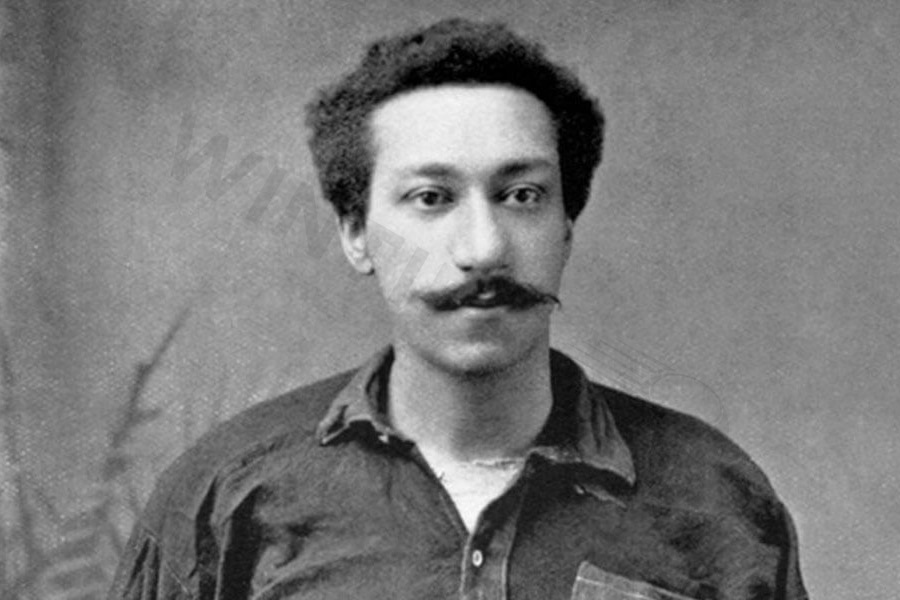
Who was the first black football player?
Arthur Wharton (28 October 1865 – 12 December 1930) is celebrated as a pioneer in football history and is widely regarded as the first black professional footballer. His remarkable journey, spanning from his early days in Ghana to his contributions to British football, left an indelible mark on the sport and inspired generations to come.
Early Life and Athletic Beginnings
Arthur Wharton was born in Jamestown, Gold Coast (modern-day Accra, Ghana), to a mixed heritage family. His father, Henry Wharton, was a Grenadian missionary of Scottish and West African descent, while his mother, Annie Florence Egyriba, belonged to the Fante Ghanaian royal lineage. At the age of 19, Wharton moved to England in 1882 with aspirations of becoming a Methodist missionary. However, his passion for athletics soon took precedence.
An exceptional all-around athlete, Wharton demonstrated his prowess in various sports. In 1886, he equaled the amateur world record of 10 seconds for the 100-yard sprint, cementing his place as a world-class sprinter. Alongside cycling and cricket, football became his most defining pursuit, where he emerged as a trailblazer in professional sports.
Football Career
Early Days
Wharton began his football career as an amateur goalkeeper for Darlington. His talent caught the attention of Preston North End after a notable performance against them. Joining Preston as an amateur, he was part of the team that reached the FA Cup semi-finals in the 1886–87 season. His goalkeeping skills were widely admired, with Athletic News describing one of his performances as “one of the best exhibitions of goalkeeping” they had seen.
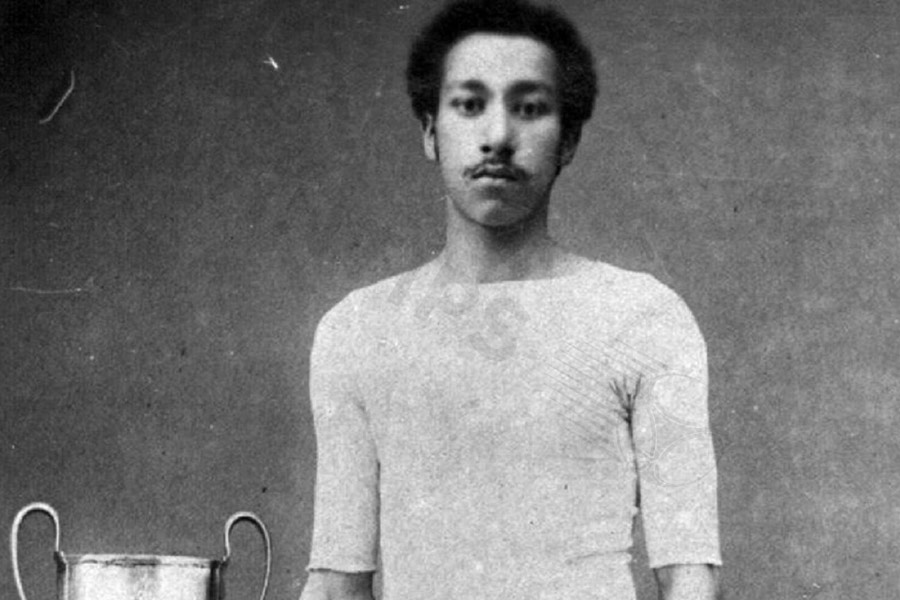
Despite his potential, Wharton left Preston in 1888 to focus on his running career. However, his football journey was far from over.
Professional Transition
In 1889, Wharton joined Rotherham Town as a professional player, becoming the first black footballer to take up professional status. He balanced his football career with running a pub in Rotherham and later married Emma Lister in 1890.
By 1894, Wharton moved to Sheffield United. Although primarily an understudy to the first-choice goalkeeper William “Fatty” Foulke, he managed to play three games for the club, including a First Division match, making him the first mixed-heritage player to compete in England’s top flight. Wharton’s time at Sheffield United underscored his resilience in the face of adversity and his unwavering commitment to the sport.
Later Years
Wharton’s football journey continued with stints at Stalybridge Rovers, Ashton North End, and Stockport County. In addition to goalkeeping, he occasionally played as a winger, showcasing his versatility on the field. His career spanned numerous clubs and leagues, reflecting his dedication despite the challenges of racial prejudice and discrimination he often faced.
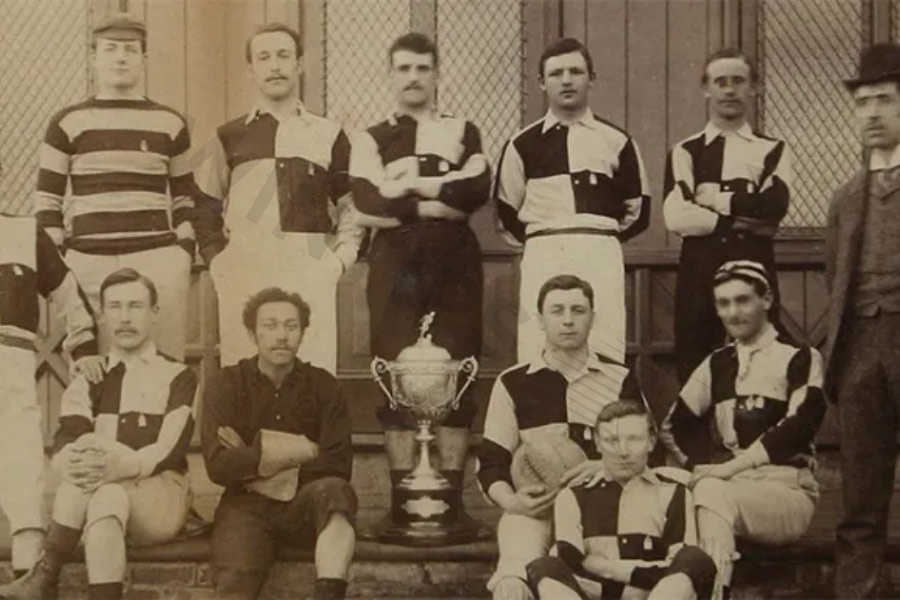
Life After Football
Retiring in 1902, Wharton’s post-football life was marked by struggle. He developed a drinking problem and found work as a colliery haulage worker in Yorkshire. By 1911, he was living with his wife Emma in West Yorkshire, employed as a coal miner.
When World War I erupted in 1914, Wharton joined the Volunteer Training Corps, demonstrating his readiness to defend Britain if needed. However, his later years were marred by financial hardship, and he passed away in 1930, buried in an unmarked pauper’s grave.
Learn the definition of what is a bookmaker to immerse yourself in the exciting and thrilling world of football betting.
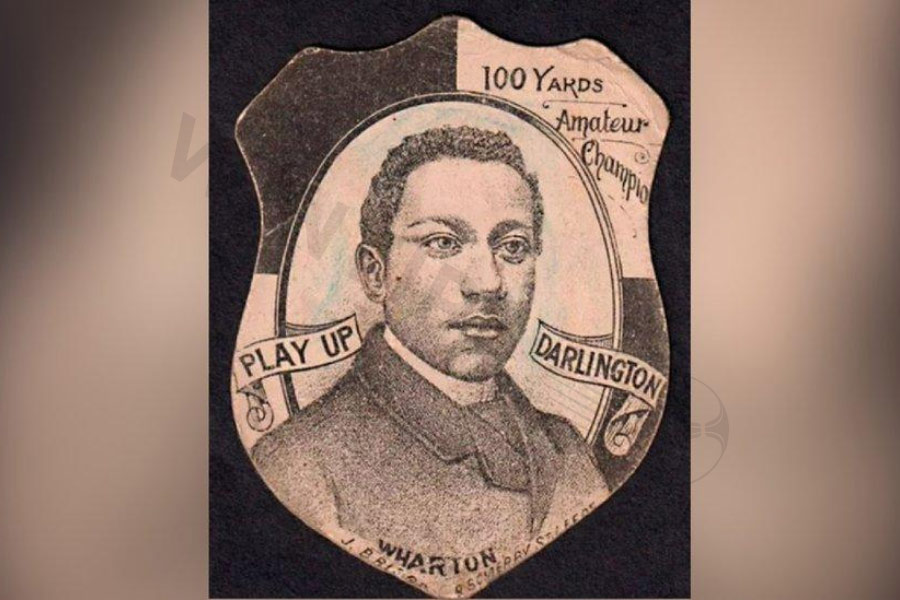
Legacy
Arthur Wharton’s contributions to football were largely overlooked during his lifetime, but his legacy has since been recognized and celebrated.
Hall of Fame Induction: In 2003, Wharton was posthumously inducted into the English Football Hall of Fame, acknowledging his trailblazing role in the sport.
Recognition Campaigns: In 1997, a headstone was placed on his grave following a campaign by anti-racism group Football Unites, Racism Divides. This marked the beginning of broader efforts to honor Wharton’s achievements.
Statues and Memorials
In 2012, a small statue of Wharton was presented to FIFA and permanently displayed at its headquarters.
On 16 October 2014, a statue honoring Wharton was unveiled at St George’s Park National Football Centre.
In 2020, a mural commemorating his life was unveiled in Darlington on his 155th birth anniversary.
Cultural Impact: Wharton’s story inspires conversations about diversity and inclusion in football. His resilience against racial discrimination serves as a powerful reminder of the barriers he overcame as a pioneer in professional sports.
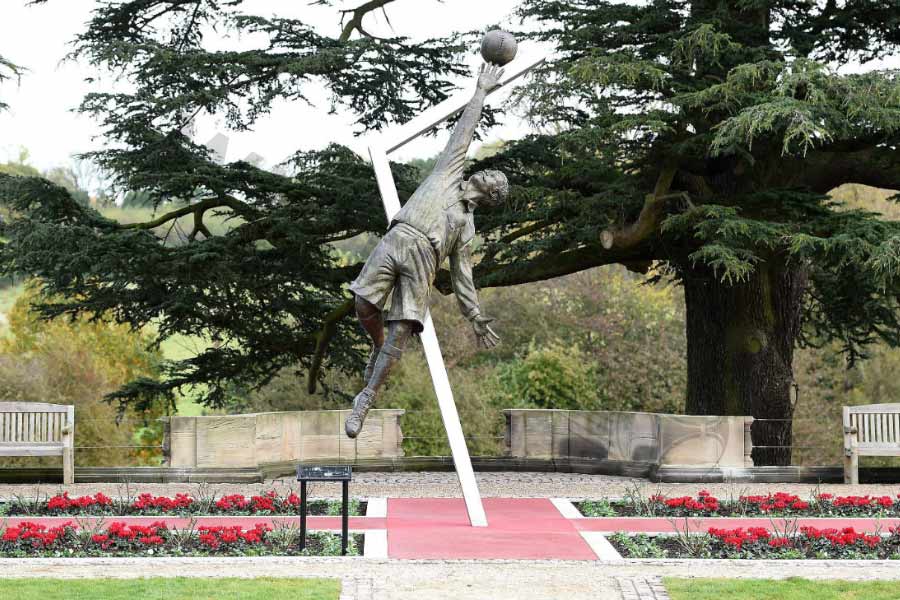
A Lasting Inspiration
Arthur Wharton’s life is a testament to the strength of the human spirit and the transformative power of sport. As the first black professional footballer, he broke barriers and paved the way for future generations. His achievements, both on and off the field, resonate as a symbol of resilience, excellence, and the fight for equality in football.
Wharton’s story reminds us that progress is often built on the sacrifices of pioneers who dare to challenge the status quo. His legacy lives on as a beacon of hope and a celebration of diversity in the world of football.
Conclusion
Arthur Wharton’s remarkable journey as a trailblazer in football history answers the question: Who was the first black professional football player? His dedication, resilience, and pioneering spirit not only broke barriers but also laid the foundation for greater diversity in the sport. Despite facing numerous challenges, Wharton’s legacy continues to inspire and remind the world of the importance of inclusivity and equality in football and beyond.
Read more: Who was the first football team? Uncover the truth here.







